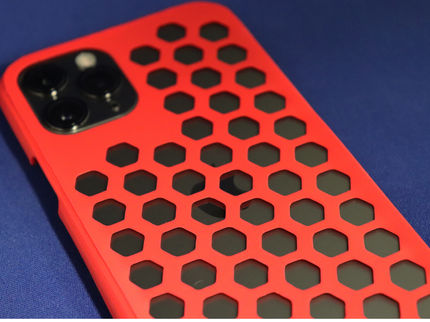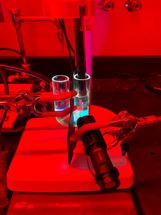Breakthrough in recycling PVC composite waste: Start-up of first industrial unit using the VINYLOOP® process, in Ferrara (Italy)
Ferrara, Italy, 25 February 2002. The first industrial unit to use the Vinyloop® process started operating this month. It is at Solvay's Ferrara site, and will be able to regenerate PVC from at least 10,000 tonnes a year of waste plastic material.
The unit is operated by Vinyloop Ferrara SpA, a joint venture of four companies: SolVin Italia, Adriaplast, Tecnometal and Vulcaflex(1) . It cost 10.6 million euros in total, and received financial support from Vinyl 2010, the European PVC industry's Voluntary Commitment (2).
The waste materials processed will primarily be PVC insulation material from electric cables, and at least 80% of this will be waste from post-consumer materials.
The Vinyloop® process was developed by Solvay's Research and Development center in Brussels, and was patented in 1998. Studies for the Ferrara project began in September 2000, and construction started on the site of Solvin Italia's old PVC production plant in March 2001. The investment project thus also demonstrates Solvay's active involvement in transforming and restoring one of its sites whose original industrial function has ceased.
The first batches of recycled PVC were produced on 4 February 2002, and investigations will be made in the coming months to see whether there is scope for improvements in the way the installation operates.
Waste insulating material from cables is often a mixture of PVC, rubber and polyethylene. To produce optimal yields from the recycling, there are plans for a line to pre-treat the waste, starting in April 2002. This will use the Tricare process, which was developed by Solvay as part of a European research program and makes it possible to attain a PVC content of 85% from the waste material.
The life cycle assessment for PVC applications has been greatly improved by this new ability to recycle composite waste materials, and the start-up of this first unit demonstrates the will of Solvay and its partner firms to make practical progress in their pursuit of sustainable development. Such an initiative is only valid, however, if the process is cost- effective. In fact, the quality of the PVC regenerated in the Vinyloop® process makes possible a selling price which is a high percentage of that for a virgin compound. This will assist Vinyloop Ferrara SpA in quickly reaching breakeven.
The second Vinyloop® industrial unit will especially designed to recycle PVC-coated tarpaulins and fabrics produced by Ferrari Textiles (France), a company that has played a leading part from the beginning in the development of Vinyloop®. This unit should start operating in 2004, and there are half a dozen other projects being studied elsewhere in Europe, Canada and Japan.
Most read news
Organizations
Other news from the department research and development

Get the chemical industry in your inbox
By submitting this form you agree that LUMITOS AG will send you the newsletter(s) selected above by email. Your data will not be passed on to third parties. Your data will be stored and processed in accordance with our data protection regulations. LUMITOS may contact you by email for the purpose of advertising or market and opinion surveys. You can revoke your consent at any time without giving reasons to LUMITOS AG, Ernst-Augustin-Str. 2, 12489 Berlin, Germany or by e-mail at revoke@lumitos.com with effect for the future. In addition, each email contains a link to unsubscribe from the corresponding newsletter.





























































